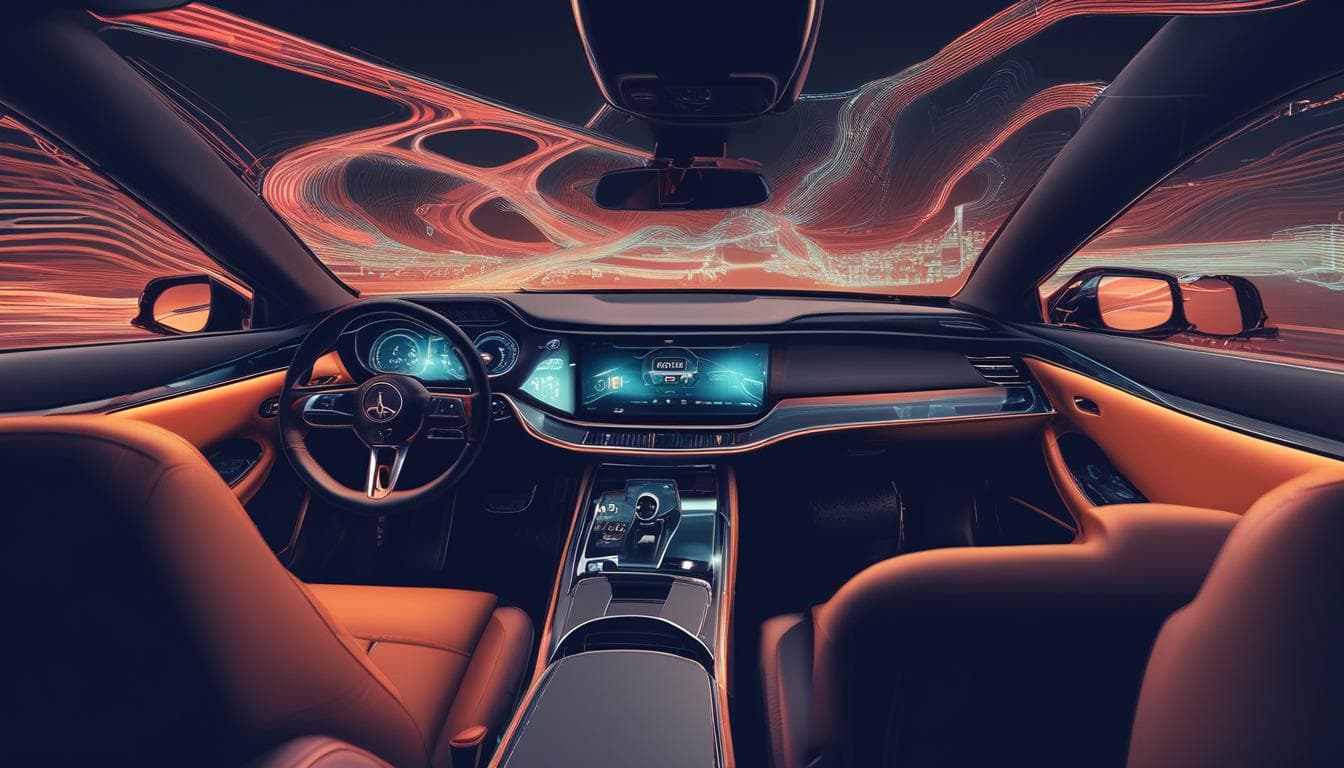With the increasing sophistication of AI in vehicles, how do you envision the future of in-car personalization evolving beyond entertainment and comfort? Imagine AI anticipating not just your preferred temperature, but also your mood, stress levels, or even suggesting personalized micro-experiences during your commute. What ethical considerations and potential benefits arise from such deep integration of AI in our driving experience?
The future of in-car personalization driven by AI holds immense potential, extending well beyond mere entertainment and comfort. Here are several ways in which we can anticipate this evolution:
Enhanced Mood Analysis
-
Emotional Detection: AI systems can harness facial recognition and voice analysis to gauge a driver’s emotional state accurately. For instance, if you appear stressed, the AI might suggest calming music or a scenic route to promote relaxation.
-
Adaptive Environments: By continually assessing your mood, the vehicle can automatically adjust lighting, temperature, and even fragrance to enhance your emotional state.
Stress Management Features
- Mindfulness Sessions: AI could offer tailored mindfulness or breathing exercises during peak traffic, seamlessly integrating relaxation techniques into the driving process.
- Rest Break Suggestions: Recognizing signs of fatigue, AI could recommend timely breaks at optimal rest areas, enhancing driver safety and comfort.
Personalized Micro-Experiences
- Tailored Notifications: Imagine receiving personalized updates about the local weather or traffic conditions that align with your current interests or plans, helping you make informed decisions on-the-go.
- Automated Decision-Making: The AI could analyze your destination and preferences to suggest alternative routes through areas you enjoy—like favorite coffee shops or scenic views—turning a mundane commute into an enriched experience.
Ethical Considerations
While these innovations are exciting, they raise important ethical questions:
- Privacy Concerns: With deep integration, the extent of data collection required for such personalization is significant. Users must be assured that their data is secure and used ethically.
- Autonomy vs. Assistance: It is crucial to maintain a balance where AI enhances the driving experience without overstepping into the territory of decision-making that should remain with the driver.
- Bias in AI Systems: The effectiveness of mood detection technologies can vary widely among different demographics, necessitating careful development to avoid reinforcing stereotypes or overlooking specific user needs.
Conclusion
In conclusion, the potential benefits of advanced in-car AI personalization are vast, from improved emotional well-being to heightened driving safety. However, as we embrace these developments, it's imperative that we engage in discussions regarding ethical frameworks and data privacy to ensure that the advancements benefit all users responsibly. What are your thoughts on the best approaches to address these ethical considerations?
Explore More on This Topic
Join the Conversation
- The Future of Road Trips: AI-Powered Itineraries vs. Spontaneity
Explore the evolving landscape of road trips in the age of AI. Will curated itineraries replace spontaneous adventures, or will there be a balance? Discuss the potential impact of AI on the driver and passenger experience.
- The Future of Automotive Artistry: Will AI Drive Design or Compete With It?
Explore the future of automotive artistry in the age of AI. Will AI become a collaborative tool for car designers, a new medium for artistic expression, or a competitor creating its own automotive aesthetics? Join the discussion and share your vision.
- How Will Self-Driving Cars Reshape Our Cities?
Explore the potential impact of autonomous vehicles on urban planning, infrastructure, traffic flow, and public transportation. Discuss dedicated lanes, parking changes, and new urban concepts.





